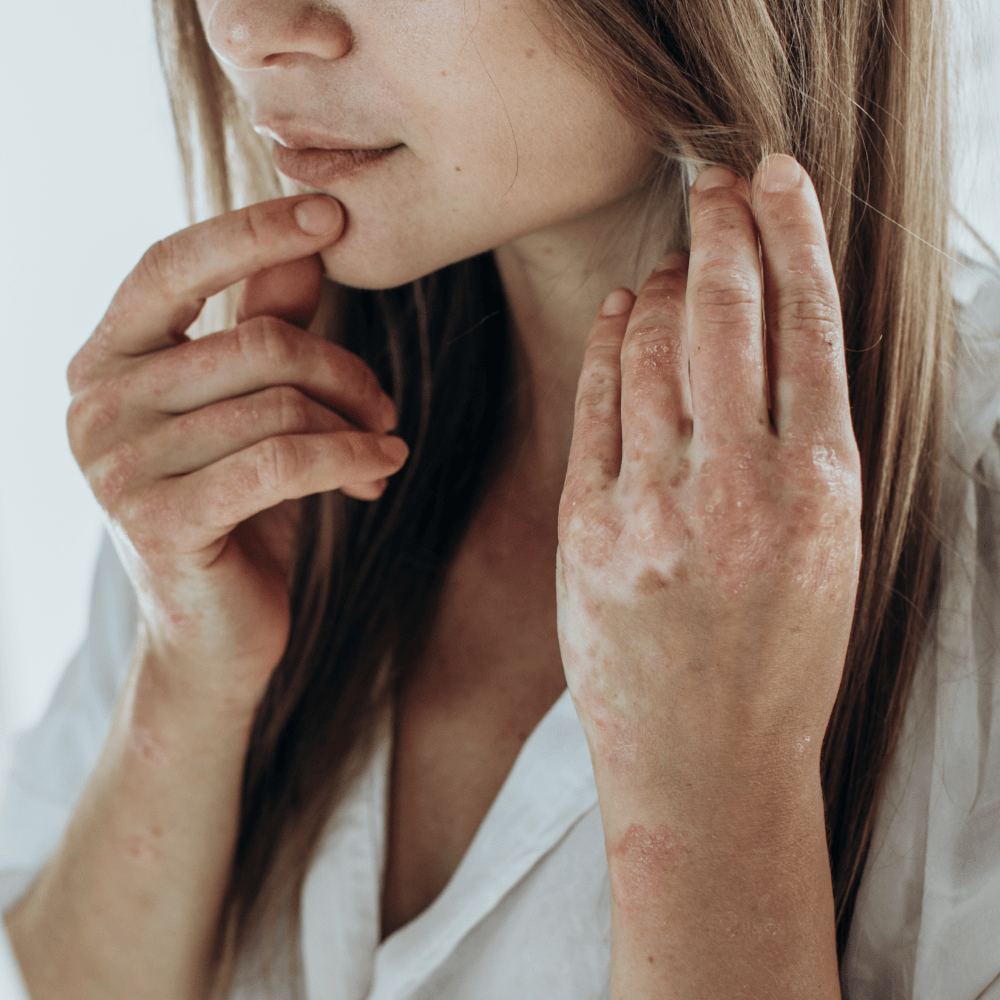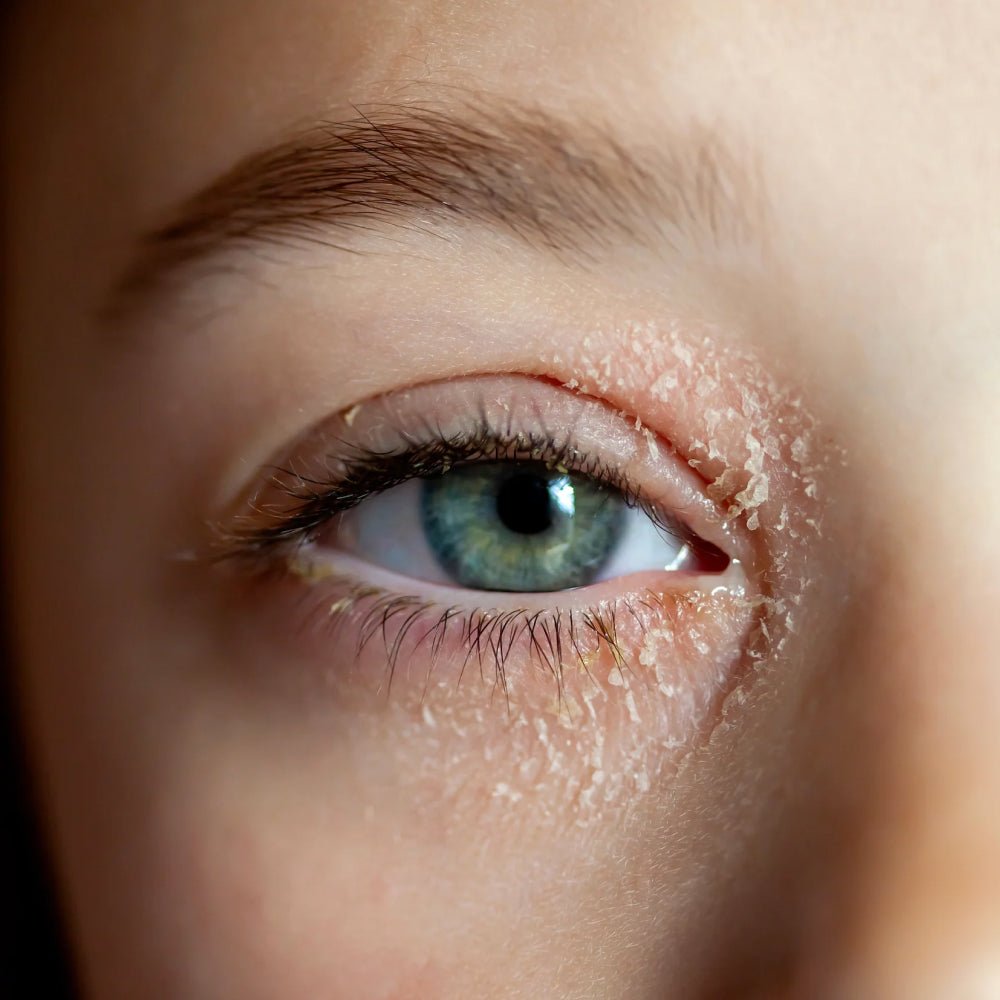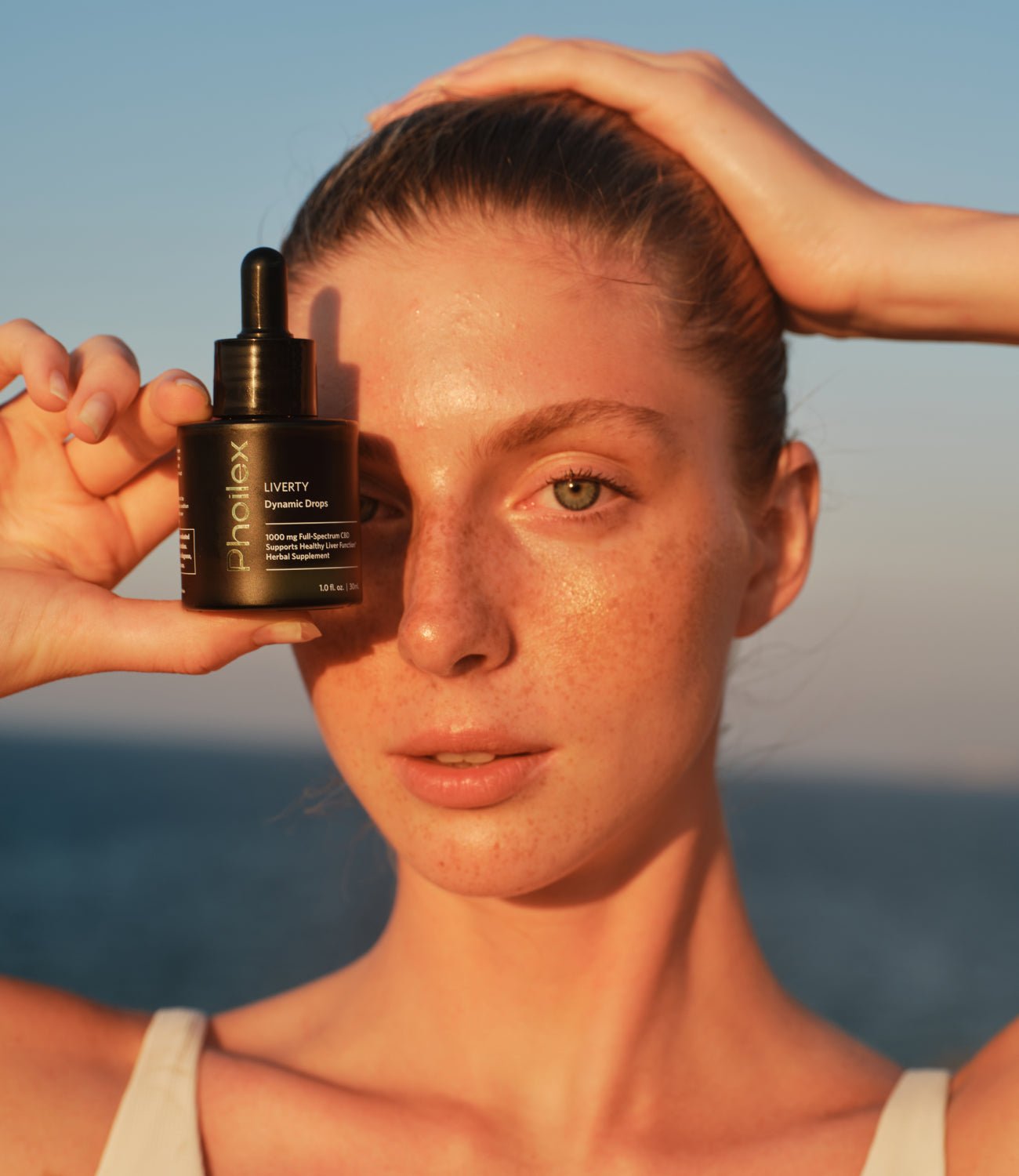One of the most researched topics in modern dermatology is the "gut-skin axis." This concept posits that the health of your gut is directly linked to the health of your skin.
Our gut contains trillions of microbes (the microbiome) that play a critical role in regulating our immune system. When this microbiome is unbalanced (a state called "dysbiosis"), it can lead to increased intestinal permeability, often called "leaky gut."
This allows inflammatory compounds and toxins, which should normally be contained within the gut, to enter the bloodstream. The body mounts a systemic immune response to these "invaders," and this inflammation can manifest as a flare-up in the skin.
-
The Science: Scientific reviews, such as those exploring the Gut-Skin Axis in dermatological disease, describe this as a complex, bidirectional relationship. Furthermore, research published by the National Institutes of Health (NIH) specifically highlights how disturbances in the gut microbiome are linked to the development of atopic dermatitis (Source: Microbiome in the Gut-Skin Axis in Atopic Dermatitis).
Foods That May Promote Inflammation (Pro-inflammatory)
Just as some foods can calm inflammation, others can promote it. For individuals with inflammatory skin conditions, these foods may act as triggers for a flare-up.
-
Refined Sugars and Processed Foods: White bread, sugary drinks, and packaged snacks can spike blood sugar and are known to be highly inflammatory.
-
Trans Fats and Certain Processed Meats: Found in fried foods, some margarines, and processed meats (like sausages and deli meats), these fats can disrupt the body's inflammatory balance.
-
Alcohol: Alcohol consumption can be a significant trigger, particularly for psoriasis. The National Psoriasis Foundation notes that alcohol can promote inflammation and is often cited by patients as a cause of flare-ups.
Foods That Fight Inflammation (Anti-inflammatory)
An anti-inflammatory diet focuses on whole, nutrient-dense foods that help calm the body's inflammatory response.
-
Omega-3 Fatty Acids: Perhaps the most potent anti-inflammatory nutrient.
-
Sources: Fatty fish (salmon, mackerel, sardines), flaxseeds, chia seeds, and walnuts.
-
-
Antioxidants: These compounds (like Vitamins A, C, E, and selenium) fight oxidative stress, a process that contributes to chronic inflammation.
-
Sources: A colorful variety of fruits and vegetables, such as berries, spinach, broccoli, avocados, and citrus fruits.
-
-
Probiotics and Prebiotics: These support a healthy gut microbiome, reinforcing the gut-skin axis.
-
Sources (Probiotic): Fermented foods like yogurt, kefir, and sauerkraut.
-
Sources (Prebiotic): Garlic, onions, asparagus, and bananas (food for the good bacteria).
-
Many experts, including those cited by the National Psoriasis Foundation, suggest an anti-inflammatory eating pattern like the Mediterranean diet, which is rich in these very foods.
Beyond the Plate: Supporting Your System with Potent Botanicals
While a food-first approach is foundational, supplementing with targeted, high-impact botanicals can provide advanced support for calming systemic inflammation and stress.
This is where the power of modern extracts comes in. For example, Curcumin (from Turmeric) is one of the most studied natural compounds in the world for its ability to target key inflammatory pathways. Chaga Mushroom is rich in melanin and potent antioxidants, helping the body fight free radicals that contribute to skin aging and inflammation. Furthermore, Tocopherol (Vitamin E) acts as a major lipid-soluble antioxidant, essential for protecting cell membranes in the skin from damage.
This internal support system is the core philosophy behind our Phoilex Liverty Dynamic Drops. We formulated this blend to combine these powerful botanicals (like Curcumin and Chaga) with ingredients traditionally used to manage systemic reactions: Milk Thistle (Silybum Marianum) to support the body's natural detoxification pathways (like the liver), and Nettle Leaf (Urtica Dioica) and Lemon Balm (Melissa Officinalis), which are known for their calming and anti-histamine properties—all of which are relevant factors in eczema and psoriasis flare-ups.
Key Nutrients for Building a Better Barrier
For eczema especially, a weak barrier is a primary cause. Nutrition can provide the essential building blocks to strengthen this barrier from the inside out.
-
Zinc: This mineral is critical for skin repair and maintaining the integrity of the barrier. In fact, studies have shown that zinc-based preparations can help improve skin barrier function in patients with atopic dermatitis, demonstrating its importance in barrier health.
-
Vitamin D: Often called the "sunshine vitamin," Vitamin D plays a crucial role in modulating the skin's immune system and barrier function. Low levels of Vitamin D have been linked to atopic dermatitis. A 2024 systematic review and meta-analysis published on PubMed confirmed that Vitamin D supplementation significantly reduced the severity of atopic dermatitis, suggesting it is a valuable supportive therapy.
A Critical Note: There is No "Magic Cure" Diet
You will find many lists online claiming to "cure" eczema or psoriasis by cutting out specific foods. However, there is no one-size-fits-all diet that works for everyone.
The National Eczema Association strongly emphasizes this point, noting that while some people have specific food sensitivities (like dairy, gluten, or eggs), restrictive elimination diets should only be done under the supervision of a doctor or registered dietitian. Removing entire food groups without guidance can lead to nutritional deficiencies and may not solve the underlying problem.
Our Recommendation: Keep a food and symptom journal. Tracking what you eat and how your skin reacts can help you and your healthcare provider identify potential personal triggers.
Conclusion: A Holistic Approach to Skin Health
Nutrition is not a standalone cure for eczema or psoriasis. However, it is an incredibly powerful tool to support your body's health and manage your skin.
By adopting an anti-inflammatory diet, you can help reduce the systemic inflammation that triggers flare-ups. By focusing on key nutrients like Zinc and Vitamin D, you provide your body with the building blocks it needs to repair and maintain a healthy skin barrier.
At Phoilex, we advocate for a complete, holistic approach. Combining a nourishing, supportive diet with a consistent, gentle skincare routine one that externally protects and replenishes the skin barrier gives you the best possible strategy for achieving long-term skin health and comfort.
Disclaimer: This article is for informational purposes only and does not constitute medical advice. Please consult with a dermatologist or healthcare professional before making any significant changes to your diet or treatment plan.
Read more

For those living with eczema, healing is never just about the skin.It is about relief after years of discomfort, confidence after frustration, and the return of calm after flare-ups that felt endle...

Eczema flare-ups are periods when symptoms like redness, itching, dryness, and rashes intensify. While eczema is a chronic condition driven by genetics and an impaired skin barrier, flare-ups are n...
